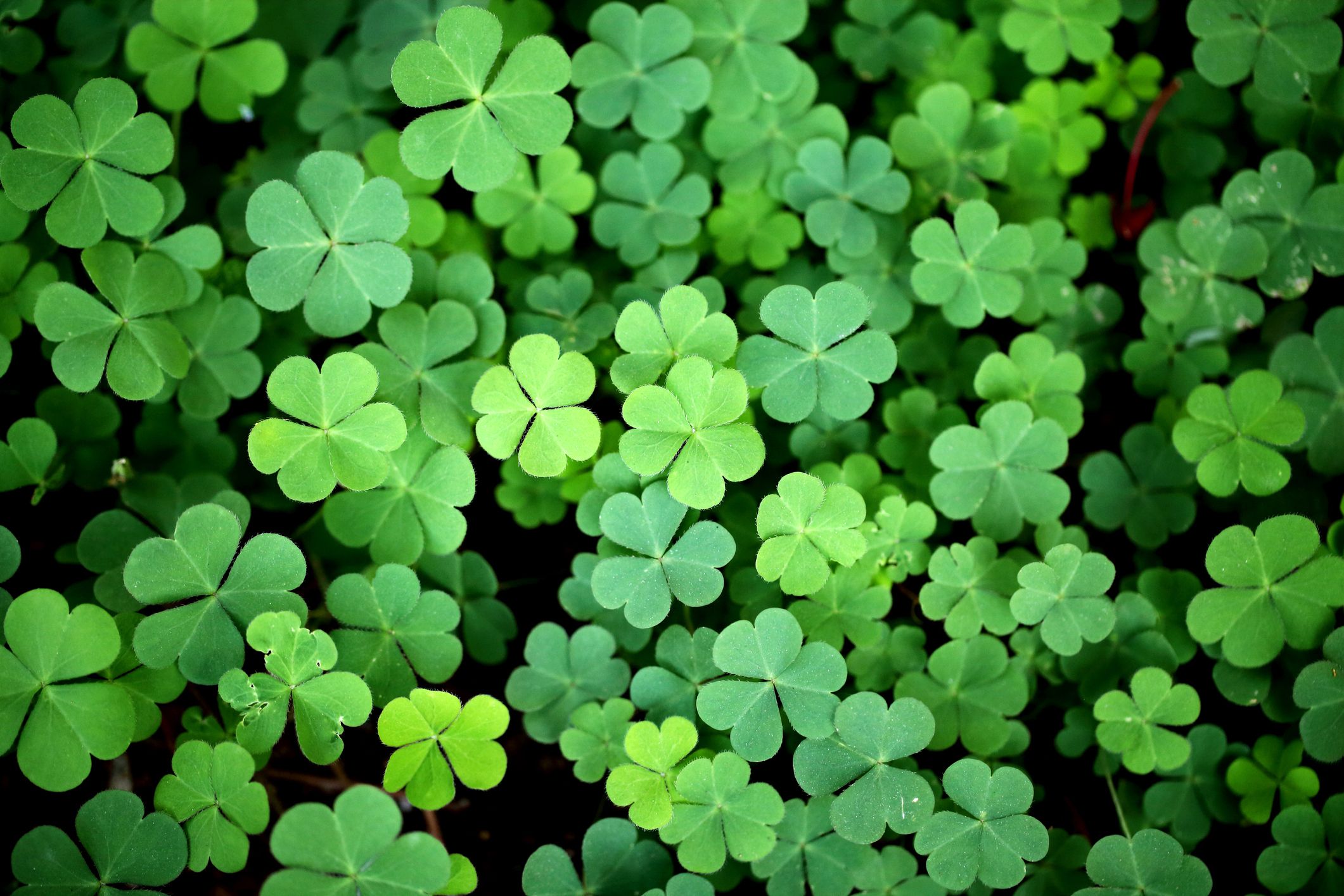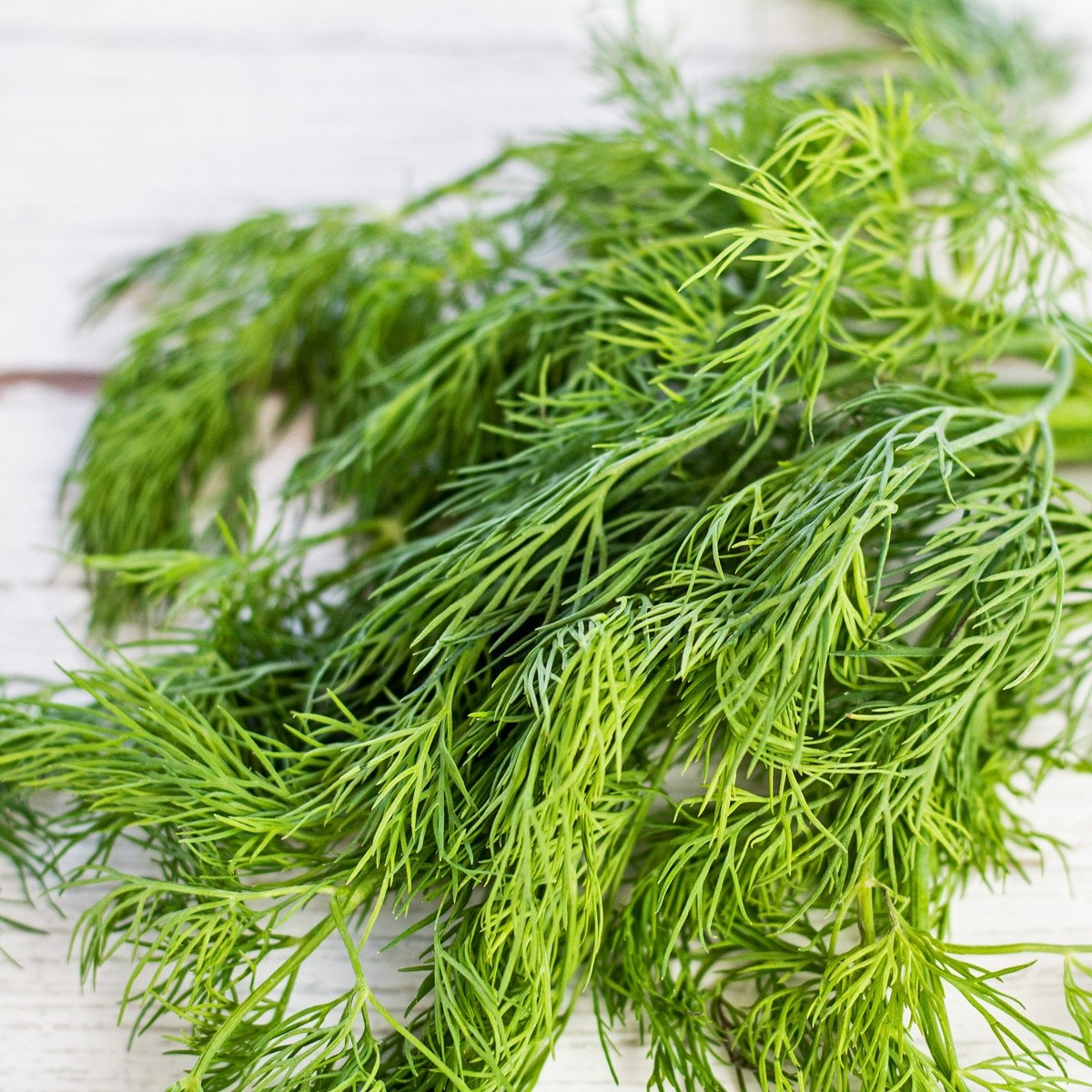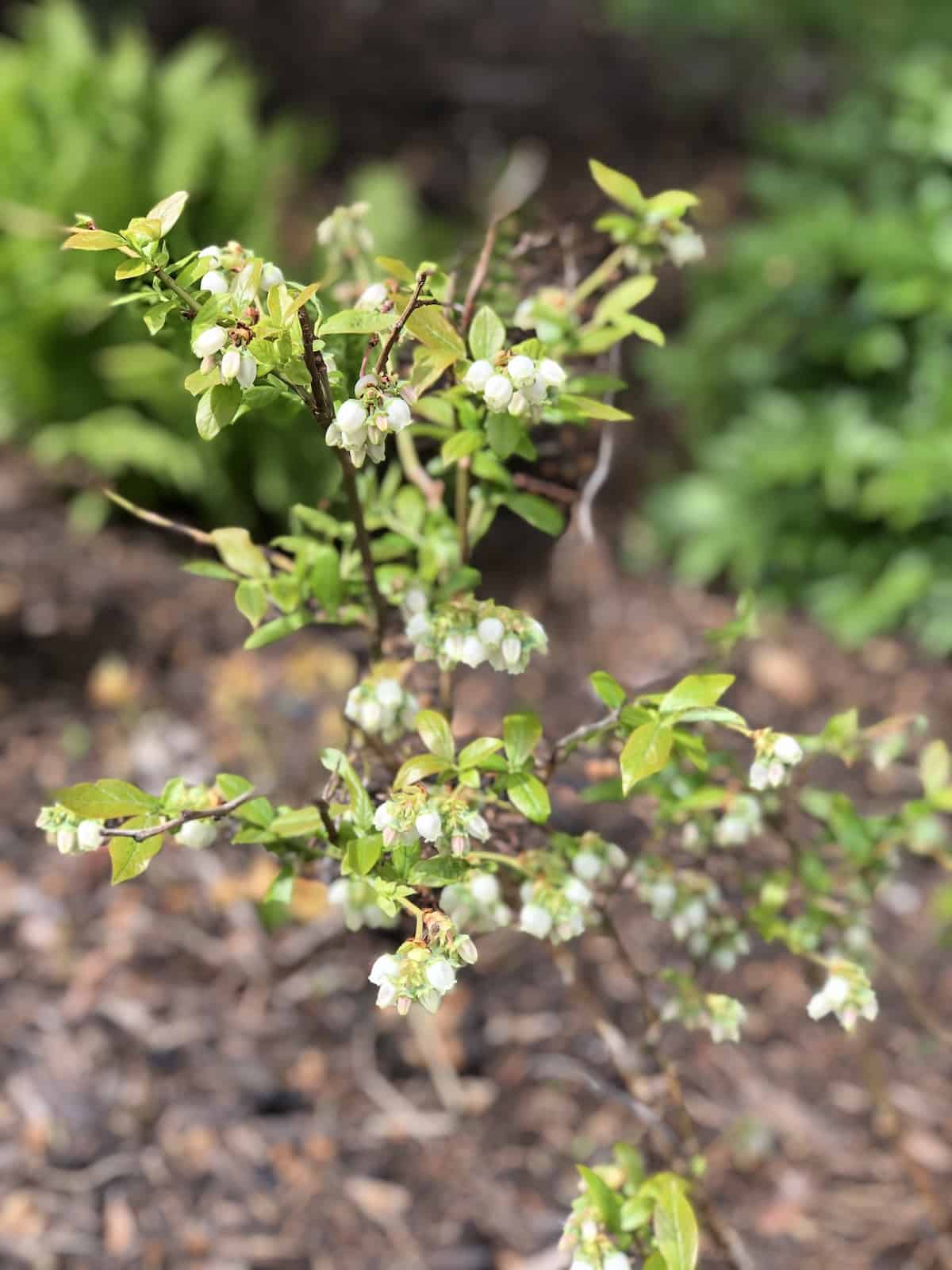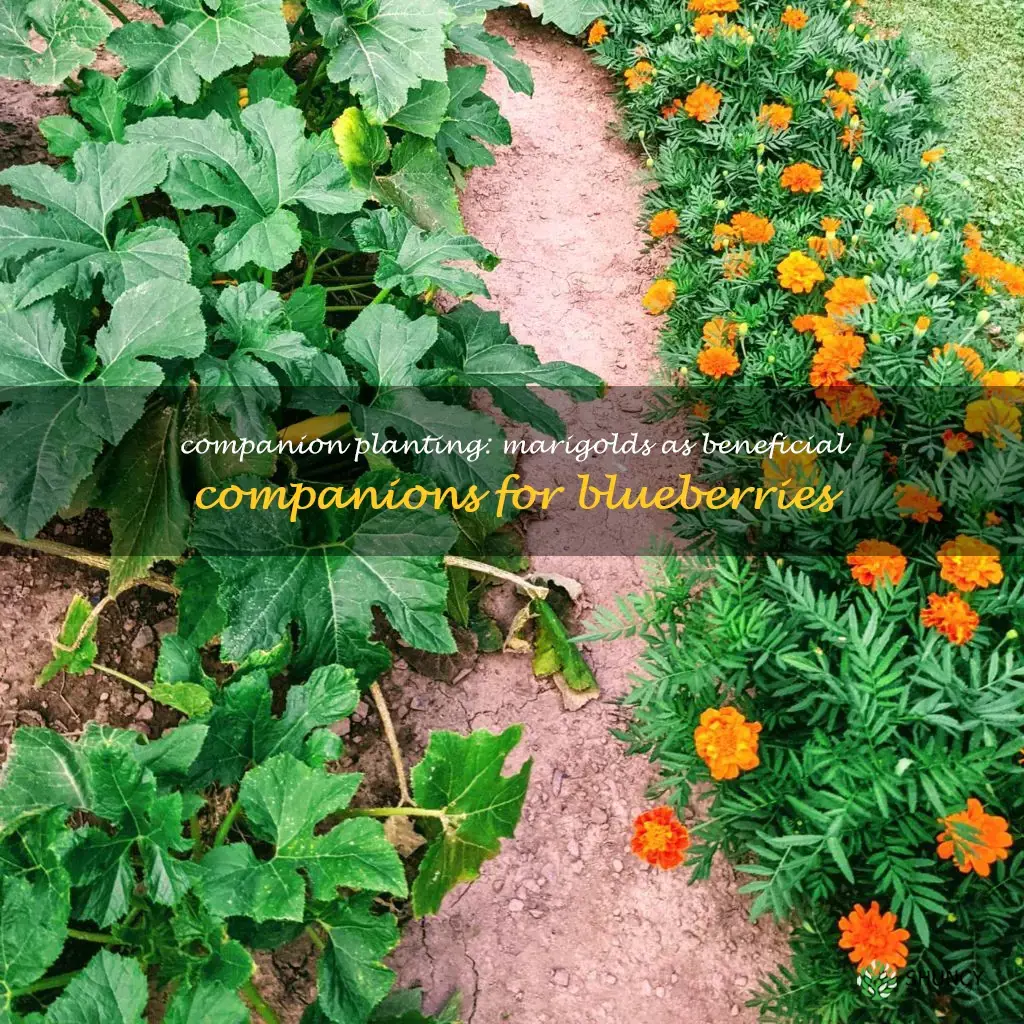The Ultimate Guide To Companion Planting With Blueberries
The Ultimate Guide to Companion Planting with Blueberries
Blueberries are a delicious and versatile fruit that can be enjoyed in a variety of ways. They are also relatively easy to grow, but there are a few things you can do to help them thrive. One of the most important things is to choose the right companion plants.
Companion planting is the practice of planting different types of plants together that benefit each other. There are many different benefits to companion planting, including:
- Attracting beneficial insects: Some plants attract beneficial insects, such as ladybugs and lacewings, which help to control pests.
- Distracting pests: Other plants can distract pests from your blueberries, making them less likely to be eaten.
- Improving soil quality: Some plants can help to improve the soil quality, making it more nutrient-rich and draining better.
- Suppressing weeds: Some plants can help to suppress weeds, freeing up your time and energy for other tasks.
When choosing companion plants for blueberries, there are a few things to keep in mind:
- The plants should have similar growing requirements. Blueberries prefer acidic soil, so you will want to choose companion plants that also prefer acidic soil.
- The plants should not compete for resources. You don't want to plant two plants that need a lot of water in the same spot, for example.
- The plants should benefit each other in some way. This could be by attracting beneficial insects, distracting pests, or improving soil quality.
With these factors in mind, here are some of the best companion plants for blueberries:
- Strawberries: Strawberries and blueberries have similar growing requirements, and they can actually help each other out. Strawberries help to improve the soil quality, which benefits blueberries. And blueberries help to attract beneficial insects, which help to control pests that can damage strawberries.

- Clover: Clover is a nitrogen-fixing plant, which means that it can help to improve the nitrogen levels in the soil. This is beneficial for blueberries, which require nitrogen for healthy growth.

- Basil: Basil is a fragrant herb that can help to repel pests, such as mosquitoes and aphids. It can also help to attract beneficial insects, such as ladybugs.

- Thyme: Thyme is another fragrant herb that can help to repel pests. It can also help to improve the flavor of blueberries.

- Dill: Dill is a herb that can help to improve the soil quality. It can also help to attract beneficial insects, such as ladybugs and lacewings.

- Borage: Borage is an annual herb that is known for its medicinal properties. It can also help to attract beneficial insects, such as bees and butterflies.

- Evergreen trees: Evergreen trees, such as pines and spruces, can help to provide shade for blueberries in the summer. They can also help to improve the soil quality by dropping their needles, which are acidic.

These are just a few of the many great companion plants for blueberries. By choosing the right companion plants, you can help your blueberries thrive and produce a bountiful harvest.
Blueberries are a delicious and versatile fruit that can be enjoyed in a variety of ways. But did you know that there are certain plants that can help your blueberries grow better? Companion planting is the practice of planting different types of plants together that benefit each other. And when it comes to blueberries, there are a few specific plants that can really make a difference.
Some of the best companion plants for blueberries include:
- Rhododendrons and azaleas: These acid-loving plants help to create a favorable growing environment for blueberries.
- Strawberries: Strawberries help to suppress weeds and attract beneficial insects, both of which can benefit blueberries.
- Clover: Clover fixes nitrogen in the soil, which can help to improve the nutrient content of the soil for blueberries.
- Herbs: Herbs like thyme, oregano, and basil can help to repel pests and attract pollinators, both of which can benefit blueberries.
If you're looking to grow healthy and productive blueberry bushes, then companion planting is a great way to go. For more information about companion plants for blueberries, be sure to visit Gardenia Inspiration.
FAQ of companion plants with blueberries
Question 1: What are the best companion plants for blueberries?
Answer: Some of the best companion plants for blueberries include:
- Evergreens: Evergreens like spruce, pine, yew, fir, and juniper help to suppress weeds and retain moisture in the soil. They also provide a good home for beneficial insects, which can help to control pests.
- Dogwood trees and shrubs: Dogwood trees and shrubs are also good companions for blueberries. They help to attract pollinators and provide shade, which can help to prevent the blueberries from getting sunburned.
- Rhododendron and azalea: Rhododendron and azalea thrive in acidic soil, just like blueberries. They also help to attract pollinators and provide a splash of color to the garden.
- Heather: Heather is another early bloomer that is a good match with blueberries in terms of attracting beneficial insects and pollinators to the garden.
- Thyme: Thyme is a herb that helps to deter pests from blueberries. It also adds a delicious flavor to blueberries when they are cooked.
Question 2: What should I avoid planting near blueberries?
Answer: Some plants that should be avoided planting near blueberries include:
- Tomatoes: Tomatoes are a nitrogen-fixing plant, which can compete with blueberries for nutrients.
- Asparagus: Asparagus is a heavy feeder, which can deplete the soil of nutrients that blueberries need.
- Eggplants: Eggplants are susceptible to the same pests and diseases as blueberries, so planting them together can increase the risk of infection.
- Cabbage: Cabbage is a brassica, which can attract pests that also feed on blueberries.
- Beans: Beans are legumes, which can fix nitrogen in the soil. This can lead to an excess of nitrogen, which can be harmful to blueberries.
Question 3: How far apart should I plant blueberries and their companion plants?
Answer: The distance between blueberries and their companion plants will depend on the size of the plants. In general, you should plant blueberries at least 3 feet apart and their companion plants at least 2 feet apart. This will give the plants enough space to grow and thrive.
Question 4: What are the benefits of planting companion plants with blueberries?
Answer: There are several benefits to planting companion plants with blueberries, including:
- Improved soil quality: Companion plants can help to improve the soil quality around blueberries by adding organic matter and nutrients.
- Reduced pest and disease problems: Companion plants can help to attract beneficial insects that prey on pests, and they can also help to suppress the growth of weeds.
- Increased pollination: Companion plants can attract pollinators, which can help to increase the pollination of blueberries and lead to a better harvest.
- Enhanced beauty: Companion plants can add color, texture, and interest to the blueberry garden.
Question 5: How do I choose the right companion plants for my blueberries?
Answer: When choosing companion plants for your blueberries, there are a few factors to consider, including:
- The size of the plants: The companion plants should be compatible with the size of the blueberry bushes.
- The soil requirements: The companion plants should have similar soil requirements to blueberries.
- The pest and disease resistance: The companion plants should be resistant to the same pests and diseases as blueberries.
- The aesthetic appeal: The companion plants should be visually appealing and complement the blueberry bushes.
Image of companion plants with blueberries
- Astilbe: This flowering plant helps to suppress weeds and attract beneficial insects.

- Clover: This nitrogen-fixing plant helps to improve the soil quality for blueberries.

- Marigolds: These flowers help to repel pests, such as Japanese beetles.

- Onions: These vegetables help to repel nematodes, which can damage blueberry roots.
- Spinach: This leafy green helps to suppress weeds and attract beneficial insects.

Post a Comment for "The Ultimate Guide To Companion Planting With Blueberries"